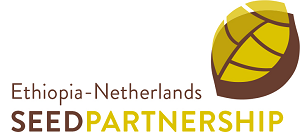Direct seed marketing has been shown to contribute positively to farmers’ access to quality seed. Why then have we not moved beyond the pilot phase?
In 2011, Direct Seed Marketing (DSM) was introduced to overcome inefficiencies in seed distribution. DSM was also hoped to stimulate accountability among actors in a seed supply system which has limited farmers’ access to and use of quality seed.
DSM warrants changing, fully or partially, the existing distribution system, which has until now resulted in unpredictable and often delayed supply of seed, as well as enabling unused and wasted seed.
Moving from resistance to proven success
The initial introduction was challenging, as the existing institutions resisted such change, believing that the problems could better be solved within the prevailing distribution system. Regardless of the initial resistance, which is understandable, the support of different actors to demonstrate the potential of DSM over the years was commendable.
With this support however, the pilot has been scaled-up to cover over 100 districts, and in the case of hybrid maize, more than 8,000 tonnes (>1/3 of the total supply) is channelled through DSM since 2015. Thus, DSM is playing a significant role in the seed supply system of Ethiopia, particularly in high potential areas.
Different studies also confirm that farmers who bought seed through DSM are better off compared to the situation where they have been buying through the current distribution system. However, DSM is still held in a pilot phase, and actors in the seed sector now expect the government to fulfil their roles and make a decision. Yet the government has until now neither decided to stop nor to adopt the pilot, and the pilot continues into the seventh year.
A complex decision in a complex system
The question now is why DSM has not been officially endorsed, given that farmers are accepted as benefiting from the changed system under the pilot. Public decision-making is a complex process. Farmers are only one actor among a long list of actors who have vested interests in this decision. These actors with diverse and sometimes competing interests, directly or indirectly influence the decision-making about DSM.
Other major actors include seed producers, government staff in different offices and at different levels involved in the allocation and distribution of seed, and the government itself as the key decision-making body. One of the major concerns we perceive government is having is whether or not through DSM all farmers, rich and poor, will have
equitable access to seed. After all, the objectives and intended outcomes of adapting a given public policy will be perceived from different perspectives.
Limited evaluation focus
Current discussions about DSM are always positive. It has been shown to contribute to increased use of seed and
decreased carryover of seed in store, what remains a serious and costly problem for government. Thus, the commonly held view is to further scale up the pilot or fully adopt it into common practice.
Thus far however, evaluation criteria have not taken into account the key initial objective of the pilot, namely, the addressing of inefficiencies in the current distribution system and consequences for farmers’ access to quality seed. Rather the major focus of DSM evaluation remains on the achievement of annual targets such as numbers of woredas and the amount of seed distributed through DSM.
This already shows the low level of internalization of the initial objective of the pilot from the evaluators’ side. The evaluation should incorporate how the approach has improved farmers’ access to seed, their desire to have choice among products, and their ability to either hold those to account for inferior quality or reward others for superior quality. These indicators should be taken into account in deciding whether it is beneficial to adapt in the future.
Questions remain
The limited focus of evaluations of DSM means key information is missing in the decision to move from pilot to practice. What do we know about the objectives and benefits foregone by switching to DSM for different actors? What are the values critical to the role actors are willing to play in the distribution system that are more important than observable benefits to farmers?
Given the diversity of agriculture in Ethiopia and the current use of DSM to achieve delivery targets, how do different actors’ visions of seed distribution and marketing in the future compare? These determine how these actors perceive DSM relative to the prevailing distribution system, and influence decision-making. Beyond the benefit to farmers, these values and perception need to be discussed openly to decide on the future of seed marketing systems in Ethiopia.
